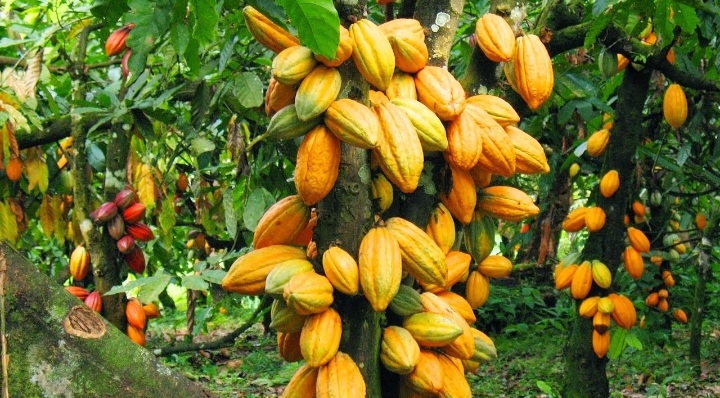Cocoa board restores over 60,000 hectares of farmland in Ghana

By Grace Samuel
The Ghana’s Cocoa Board (COCOBOD) has undertaken the task of rehabilitating over sixty thousand hectares of farms that were earlier destroyed by the dreadful swollen shoot disease.
The Head of Public Affairs at the COCOBOD, Filfi Boahen, gave the hint while addressing participants at the annual general meeting of Ghana’s CSO’s Cocoa Platform (GCCP), in Accra, Ghana.
Boatmen explained that COCOBOD was deeply worried about the wanton destruction of viable cocoa farms, including newly rehabilitated ones, adding that the Board will soon roll out measures to protect cocoa and safeguard the industry.
Meanwhile, Boahen said that rehabilitation of the massive expanse of land was part of the comprehensive Productivity Enhancement Programmes embarked by Ghana’s Cocoa Board and it spans across all seven cocoa regions in the West Africa country.
He said the massive restoration efforts aim to not only bring back productivity to these once-affected farms but also to fortify the cocoa industry’s resilience against such agricultural threats.
“This remarkable progress in the restoration of cocoa farms stands as a testament to the unwavering commitment of the Ghana Cocoa Board towards preserving the livelihoods of cocoa farmers and upholding the integrity of the cocoa industry,” he said.
Ghana is regarded around the world as the second largest producer of cocoa beans after Ivory Coast. Despit the challenges confronting cocoa produce in the country, Ghana still boast of 1.38 million hectares of land, Including the infected cocoa trees that are still producing.
However, cocoa production in Ghana has been on the decline for various reasons among which is the dreadful swollen shoot disease.
Records shows that in the crop season between 2021 and 2022, Ghana produces about 750,000 metric tonnes of cocoa beans.
But, since then, cocoa production in Ghana has dropped significantly. For example, Ghana’s cocoa output for the season lasting 2023 and 2024, is expected to be down by 40%. ”Production is in the long- term decline,” says Steve Wateridge, a cocoa expert with Tropical Research Services.
